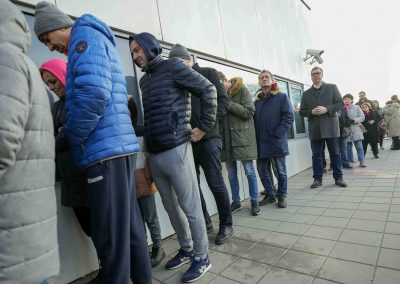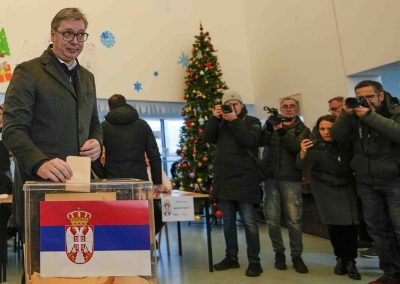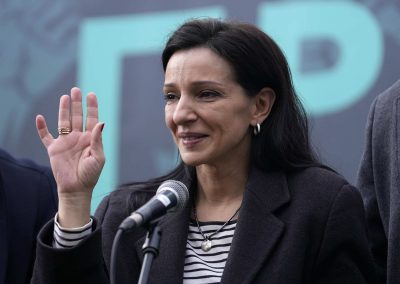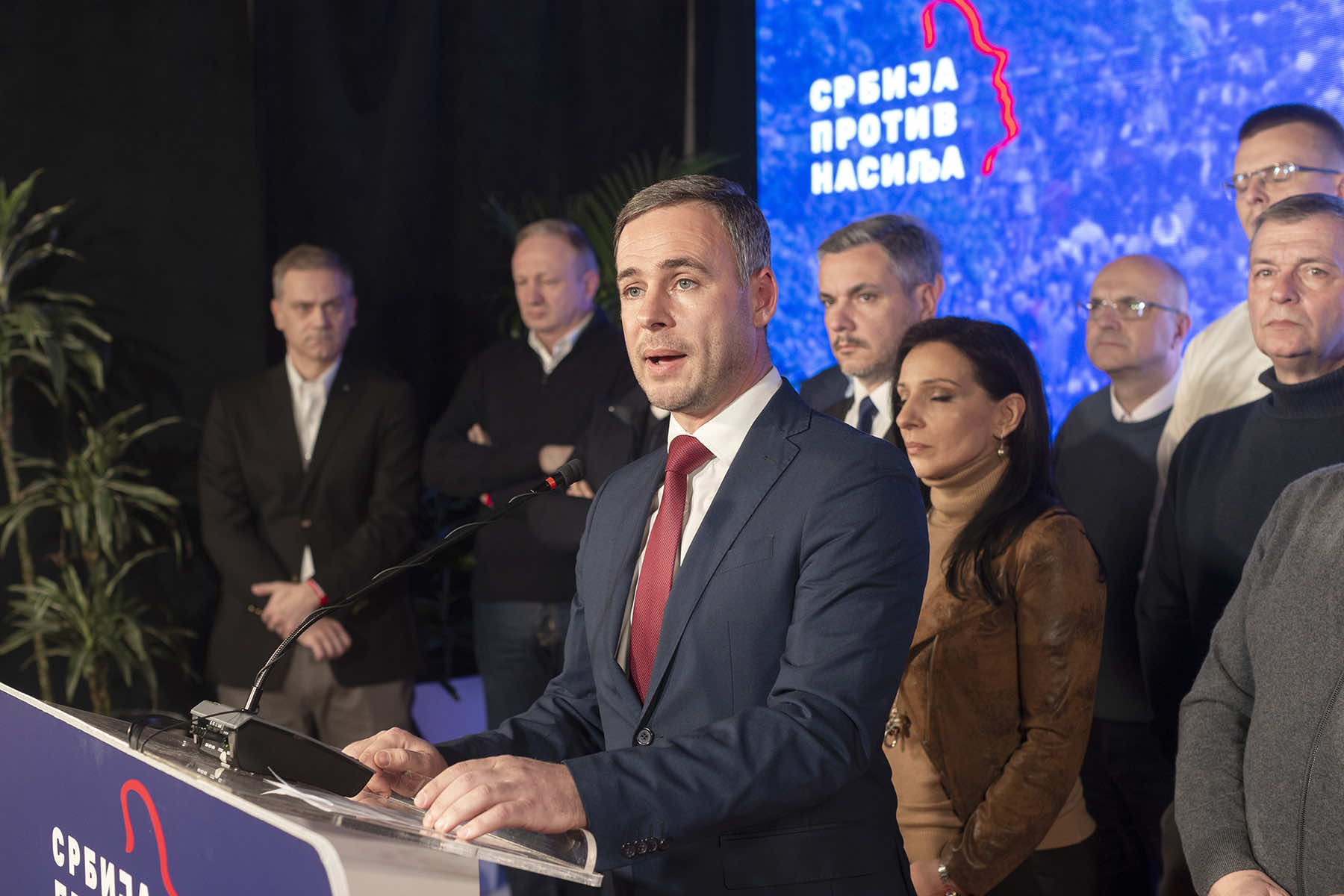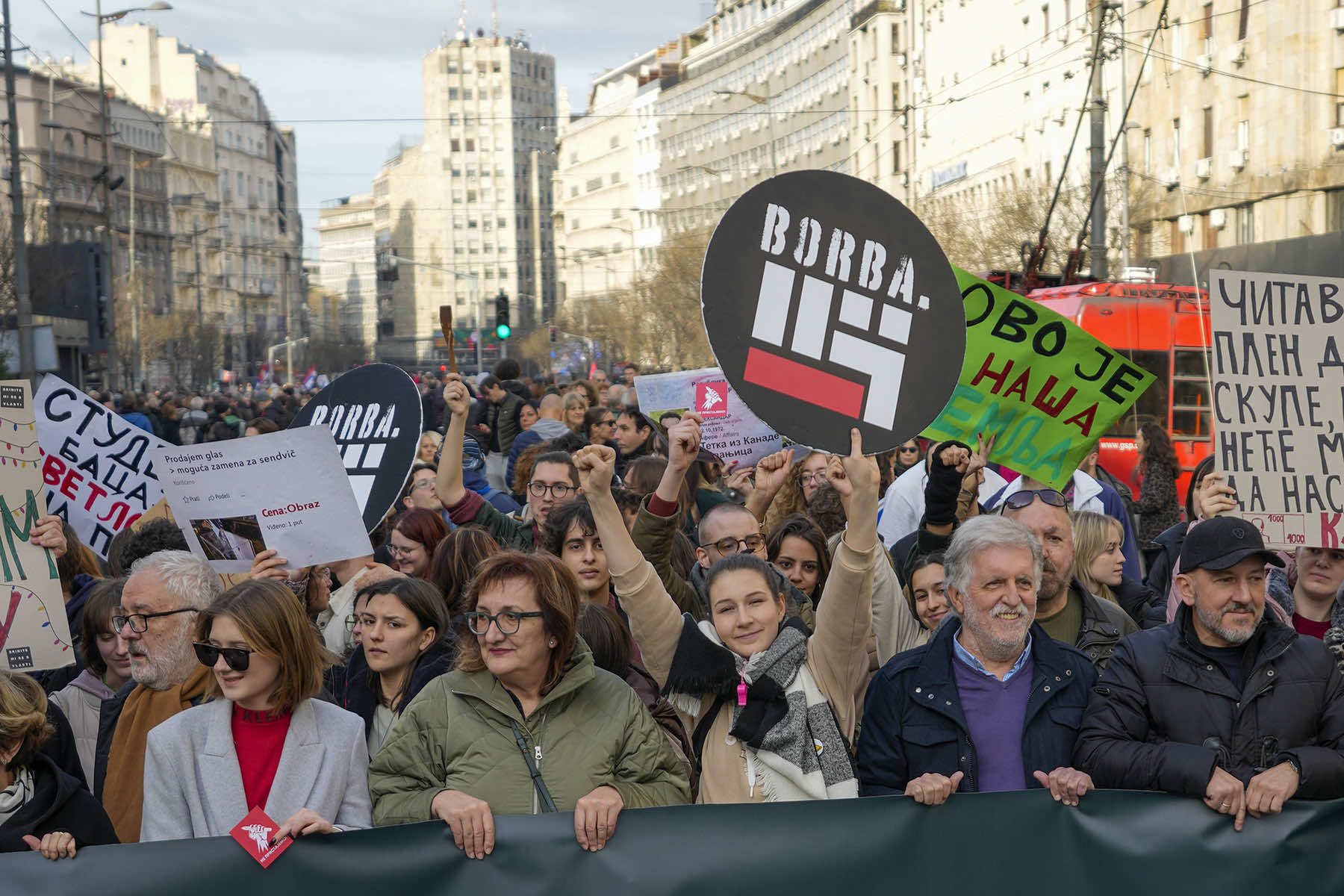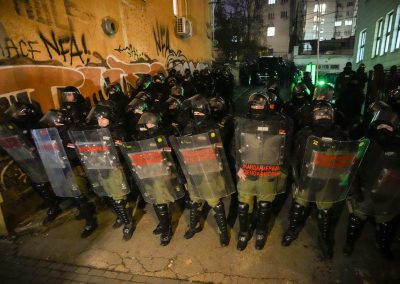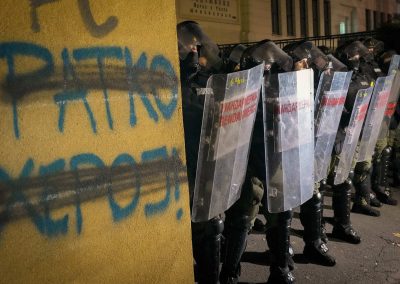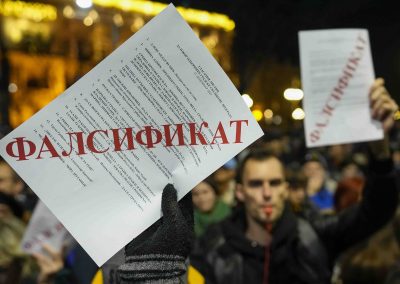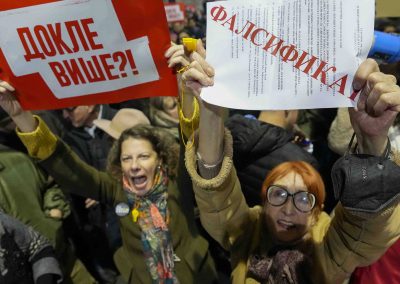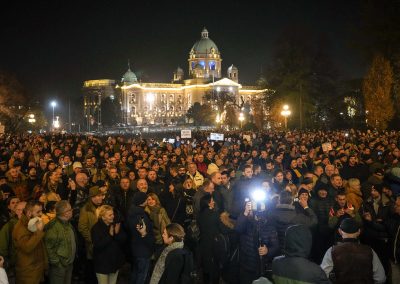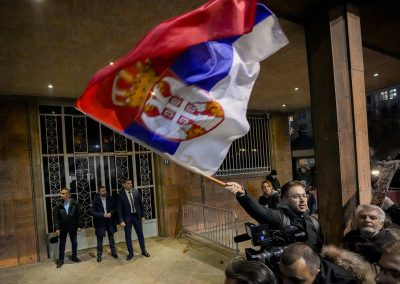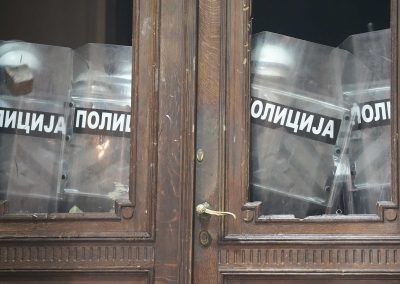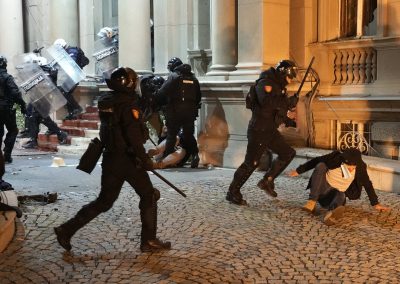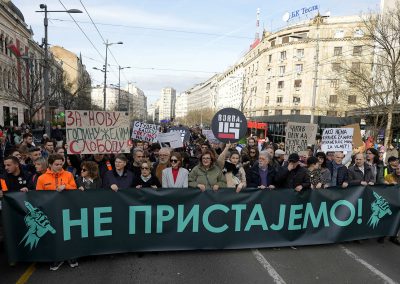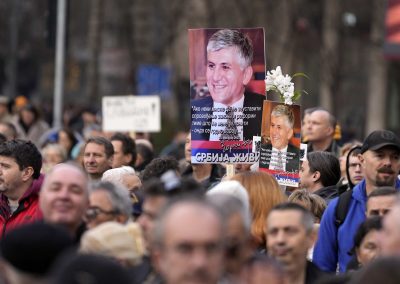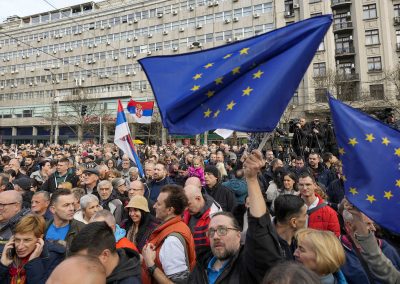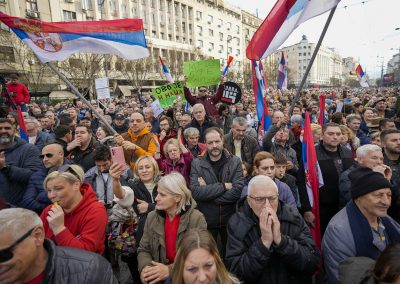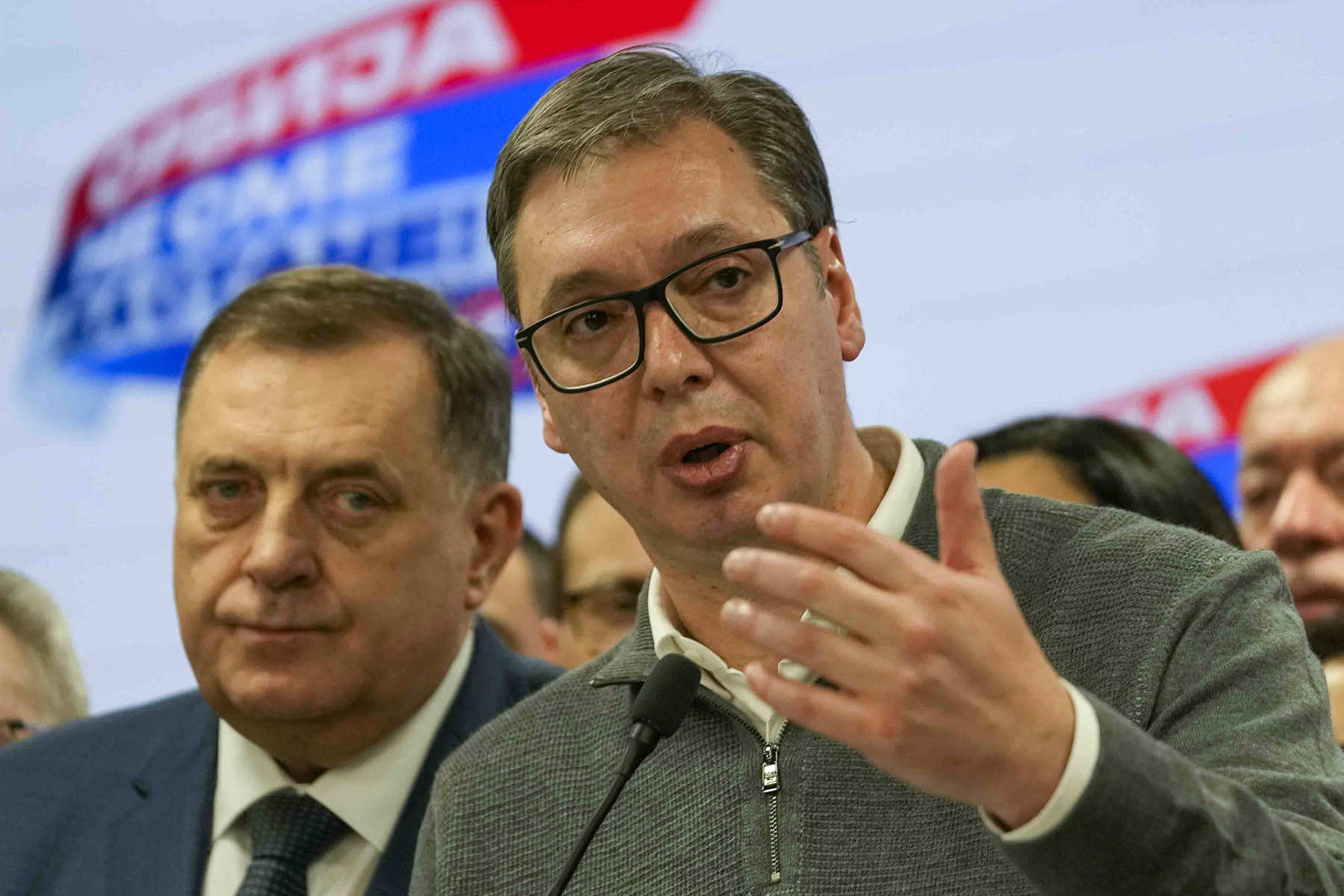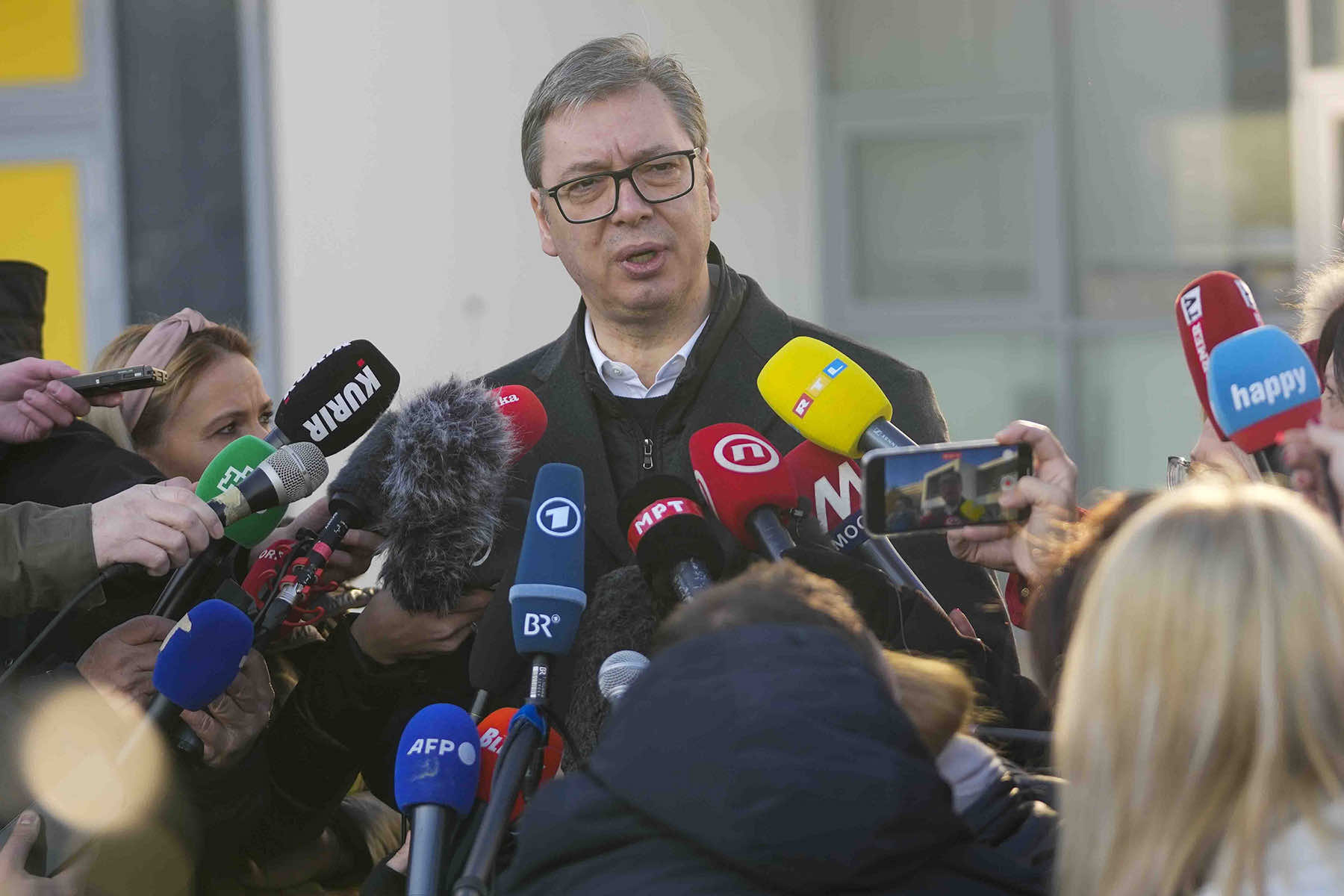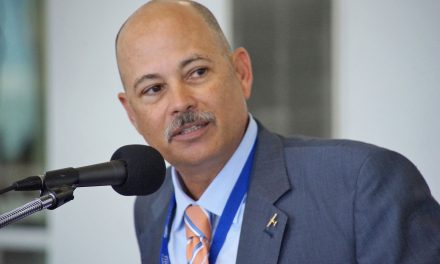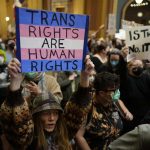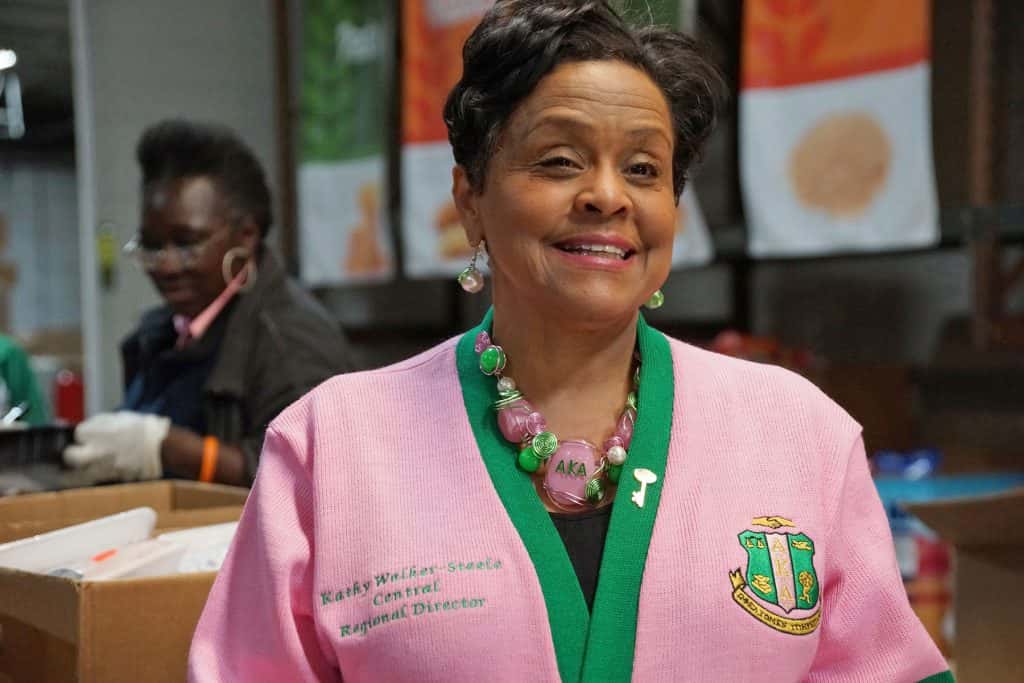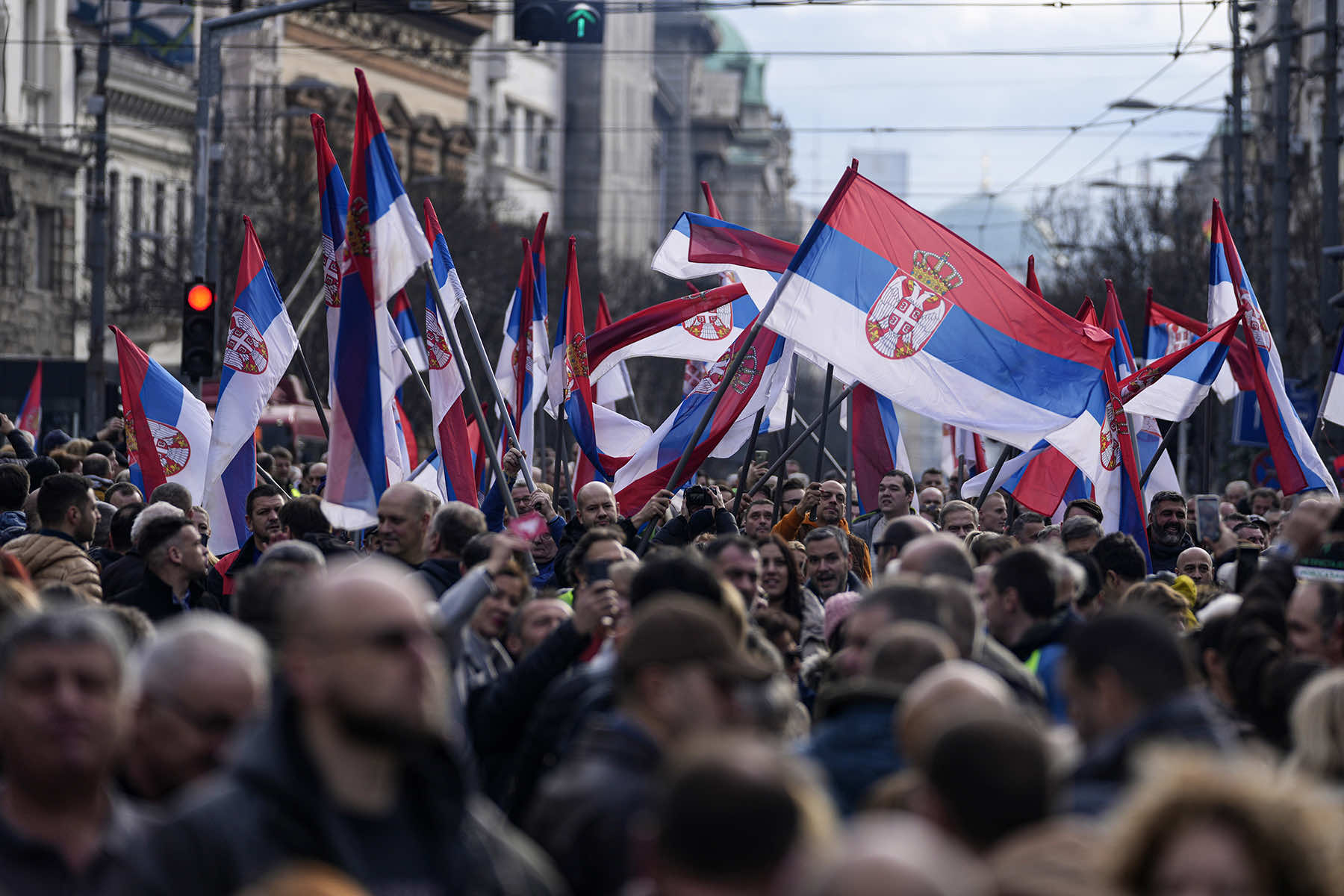
In the heart of the Balkans, Serbia finds itself embroiled in a profound political upheaval, following the recent parliamentary and local elections.
The main opposition coalition, Serbia Against Violence, has raised allegations of electoral fraud, igniting widespread public discontent and political strife in the nation, which is on the path to European Union membership. The aftermath of the elections has not only exposed deep fissures in Serbia’s political landscape, but has also raised questions about the country’s democratic integrity and its future direction.
POLITICAL UNREST IN SERBIA: A NATION AT THE CROSSROADS
Amidst accusations of vote-rigging and irregularities, including claims of vote-buying and unlawful voter influence, the political temperature in Serbia has soared. The developments come at a crucial juncture in Serbia’s history, as it grapples with its ambition to join the EU while navigating the turbulent legacy of the 1990s Balkan conflicts.
SERBIA’S ELECTORAL DISCONTENT: UNRAVELING THE ALLEGATIONS
The situation in Serbia has drawn international attention, with the EU and other global actors closely monitoring the unfolding events. The aftermath of its latest elections has been marred by a torrent of accusations and counter-accusations, turning the political atmosphere in the Balkan nation into a cauldron of unrest.
At the epicenter of the controversy is the Serbia Against Violence coalition, a formidable opposition group that has vehemently disputed the election results, citing a range of irregularities that they argue skew the essence of a democratic process.
Catalog of Allegations
The opposition’s claims are numerous, encompassing alleged malpractices that have raised serious questions about the election’s integrity. Accusations of uneven media coverage, favoring the ruling party, have been prominent. This, as per the opposition, hindered a fair representation of all political voices in the electoral discourse. There are allegations of falsified signatures and illegitimate entries on voter lists, potentially inflating the vote count in favor of certain candidates.
Reports of financial incentives offered in exchange for votes have surfaced, undermining the principle of free and fair elections. A particularly striking claim involves the transportation of people from neighboring Bosnia to vote in Belgrade, with estimates suggesting up to 40,000 individuals were involved.
“The European Union now has a big chance to restore the trust of the citizens of Serbia. The (election) will of the people of Belgrade has been absolutely betrayed while the result of the parliamentary election is not in line with the will of the people of Serbia. I think it is of utmost importance for both Serbia and the entire region to finally bring democracy into this country.” – Dragan Djilas, a leader of the SPN coalition
Response from the Ruling Party
In contrast, President Aleksandar Vučić and his right-wing Serbian Progressive Party have staunchly denied these allegations, asserting the fairness and transparency of the electoral process. The government’s narrative portrays the opposition’s claims as unfounded and a deliberate attempt to destabilize the country’s democratic fabric. President Vučić, in a bid to counter these claims, has highlighted ongoing efforts to compile evidence of external interference in the election, although specifics remain undisclosed.
“We are very happy how the election day went. The process can set an example for many other countries to follow.” – Aleksandar Vučić
A Nation’s Democratic Credentials at Stake
The heart of the dispute goes beyond the electoral outcomes, it strikes at the heart of Serbia’s democratic credentials. For a nation still treading the path towards EU integration, the implications of the allegations are profound. They not only challenge the legitimacy of the elected representatives, but also cast a long shadow over Serbia’s commitment to democratic principles, which is a prerequisite for EU membership. As the nation stands at its political crossroads, resolution of the allegations is imperative for internal harmony and for Serbia’s international standing.
A NATION’S VOICE: THE PUBLIC’S OUTCRY AND PROTESTS
In the days following Serbia’s contested elections held on December 17, 2023, the streets of Belgrade and other cities witnessed a burgeoning movement of public dissent. The outcry against alleged electoral fraud coalesced into a series of protests, capturing the deep-seated frustrations of many Serbian citizens.
The Heart of the Protests
Central to the protests has been the rallying cry against what many perceive as an assault on democratic norms. Crowds chanting “thieves, thieves” have become a common sight outside the state election commission headquarters, emblematic of the public’s distrust towards the electoral process. Opposition leaders, alongside thousands of protesters, have taken bold steps to amplify their voice. Some have occupied key buildings, such as the state election commission, to demand transparency and justice.
The Demands of the People
The primary demand resonating through the protests is the call for annulment of the election results and the conducting of new, fair elections. Protesters have articulated a deep-seated belief that the current results do not reflect the true democratic will of the Serbian people. Additionally, there is a growing clamor for international intervention to ensure that future elections are free from the irregularities that have marred the current process.
Government’s Response to Protests
In the face of the protests, the government’s response has been a mix of denial and deflection. While rejecting claims of electoral malfeasance, officials have emphasized maintaining peace and order. The government has attempted to portray the protests as isolated incidents, not reflective of the broader public sentiment.
A Reflection of Democratic Discontent
The protests are not merely about the outcome of one election, they are a manifestation of a broader struggle for democratic integrity and transparency in Serbia. The scale and intensity of the protests reflect a populace eager to hold their leaders accountable and safeguard their democratic rights. As Serbia grapples with its political turmoil, the reactions from international observers and bodies still play a crucial role in shaping the country’s democratic trajectory.
GLOBAL EYES ON SERBIA: INTERNATIONAL OBSERVATIONS AND CONCERNS
The electoral turmoil in Serbia has not only captured the nation’s attention, but also drawn the watchful eyes of the international community. Observers from across the globe have voiced their concerns, highlighting various irregularities and the need for a transparent resolution.
Insights from International Observers
A coalition of international rights watchdogs, including the Organization for Security and Cooperation in Europe (OSCE), has reported multiple irregularities. Their observations point towards a skewed electoral process marred by harsh rhetoric, media bias, and misuse of public resources. Key issues raised include allegations of vote-buying, ballot box stuffing, and the overwhelming influence of presidential campaigns on the electoral process. Such reports intensify concerns about the authenticity and fairness of the elections.
EU’s Stance and Concerns
The European Union, pivotal in Serbia’s aspirations for membership, has expressed significant concern. EU officials have noted the necessity for tangible improvements in Serbia’s electoral processes, emphasizing the importance of credible investigations into the reported irregularities. High Representative Josep Borrell and Commissioner for Neighborhood and Enlargement Olivér Várhelyi have underscored the need for transparency by the national authorities in addressing these claims.
Varied International Reactions
Germany’s Foreign Ministry, through its communication channels, has denounced the reported abuses, labeling them unacceptable for a country with EU candidate status. Contrastingly, oppressive and anti-democratic regimes like Russia and China have shown support for the election outcomes, underscoring the dynamics of their ongoing diplomatic relations with Serbia.
International Community’s Role
The situation in Serbia presents a challenging scenario for the international community, balancing between respecting national sovereignty and advocating for democratic principles. The international response and engagement in the crisis will likely influence Serbia’s future political direction, particularly its journey towards EU integration and alignment with democratic norms. The international perspective is a crucial component in understanding the complexities of Serbia’s current political landscape. As Serbia navigates through this period of uncertainty, the reactions and actions of global actors could significantly impact the resolution of the electoral dispute.
NAVIGATING THE TURMOIL: SERBIAN GOVERNMENT’S DEFENSE AND STRATEGY
In response to the escalating electoral controversy, the Serbian government, led by President Aleksandar Vučić – who ruled the Balkan state since 2012, and the Serbian Progressive Party (SNS), has adopted a firm stance, vehemently denying the allegations of electoral fraud and emphasizing their commitment to democratic principles.
Government’s Rebuttal to Allegations
President Vučić and the SNS have consistently refuted the opposition’s claims of vote rigging and manipulation. They assert that the election was conducted fairly and transparently, dismissing the allegations as unfounded attempts to undermine the government’s legitimacy. The ruling party officials have emphasized their resolve to defend what they term as “the election will of the people.” They argue that the opposition’s accusations are baseless and a ploy to destabilize the government.
Measures Against Alleged Interference
Adding to the complexity of the situation, President Vučić has mentioned efforts to compile evidence regarding interference by an unspecified foreign country in Serbia’s electoral process. That claim adds an international dimension to the dispute, suggesting external influences at play. The government has been cautious not to specify which country they believed was involved, maintaining a degree of ambiguity while highlighting their concerns about external meddling.
Balancing Internal Stability and International Relations
Faced with internal dissent and international scrutiny, the government’s primary focus appears to be on maintaining stability and control within the country. The SNS’s narrative is geared towards portraying a sense of normalcy and control, emphasizing the legitimacy of the electoral process and the need for national unity.
A Stance of Defiance
The government’s approach can be seen as a stance of defiance against both domestic opposition and international criticism. The posture reflects the government’s determination to maintain its position of power amidst the swirling accusations and protests. The Vučić administration’s handling of the crisis will be crucial in defining Serbia’s immediate political future and its long-term aspirations, particularly in relation to EU membership aspirations.
SERBIA’S ELECTORAL CRISIS: ECHOES ACROSS THE BALKANS
The electoral crisis in Serbia resonates far beyond its borders, having significant implications for the Balkan region’s stability and its relations with global powers.
EU Aspirations and Democratic Standards
Serbia’s journey towards EU membership is intricately linked with its adherence to democratic norms. The current electoral controversy poses a challenge to this path, potentially affecting its candidacy status. The EU’s response to the events has been closely watched, as it may set a precedent for how the bloc addresses democratic issues in aspiring member states.
Balancing Act with Russia and NATO
Serbia’s ties with Russia, especially in the context of the ongoing Ukraine conflict, add complexity to its international relations. While maintaining a formal stance of neutrality, Serbia’s approach to these electoral issues could influence its relationships with both Russia and NATO. The support from Russia following the elections highlights the geopolitical tug-of-war in which Serbia finds itself.
Tensions with Kosovo and Military Posturing
The electoral unrest occurred amidst ongoing tensions with Kosovo. Serbia’s recent move to consider reinstating compulsory military service has been seen as a response to regional tensions, indicating a hardening military stance. How Serbia navigates its relations with Kosovo, especially in light of the proposed U.S. arms sale to Kosovo, will be a critical aspect of its regional strategy. The unfolding situation in Serbia is a bellwether for the broader Balkan region, reflecting the intricate balance of domestic politics, regional stability, and international diplomacy.
SERBIA AT A CROSSROADS: CONTEMPLATING THE FUTURE
As Serbia grapples with its electoral crisis, the nation stands at a critical juncture, with several potential scenarios unfolding that could shape its future political and diplomatic landscape.
Potential for Electoral Rerun
Given the intensity of the allegations and public outcry, there exists a possibility of an electoral rerun. That could either pacify the current unrest or further intensify political divisions, depending on the transparency and fairness of any new election.
Escalation of Protests and International Pressure
Continued protests and mounting international pressure could lead to significant political concessions from the current government. This scenario might foster a more inclusive political dialogue, addressing some of the democratic deficiencies highlighted by the opposition and international observers.
Strengthening of Current Government’s Position
Conversely, the government might succeed in consolidating its power, especially if it manages to dispel the allegations convincingly. That could lead to a period of political stability under the current regime, but questions about democratic practices might persist.
Implications for EU Membership and Regional Stability
Serbia’s path towards EU membership could be redefined by how recent events unfold. The EU’s reaction will be pivotal in setting the tone for future relations. The regional stability in the Balkans, particularly concerning Kosovo and relations with Russia, will also be significantly influenced by Serbia’s internal political dynamics.
As Serbia navigates politically turbulent waters, the decisions made in the coming months will be crucial in defining the country’s democratic trajectory and its role in the broader European context.
- Strength of immigrant roots: How Marina Dimitrijevic builds a cultural bridge between Milwaukee and Serbia
- Serbia’s Kragujevac sees a new chapter of international cooperation with Milwaukee as a Sister City
- The Slava of St. Sava: A photographic journey into the experience of Serbian Orthodox faith in Milwaukee
- A nation at the crossroads: Understanding the global impact of Serbia’s internal political discontent
MI Staff, with Jovana Gec and Dusan Stojanovic
BELGRADE, Serbia
Darko Vojinovic (AP)

